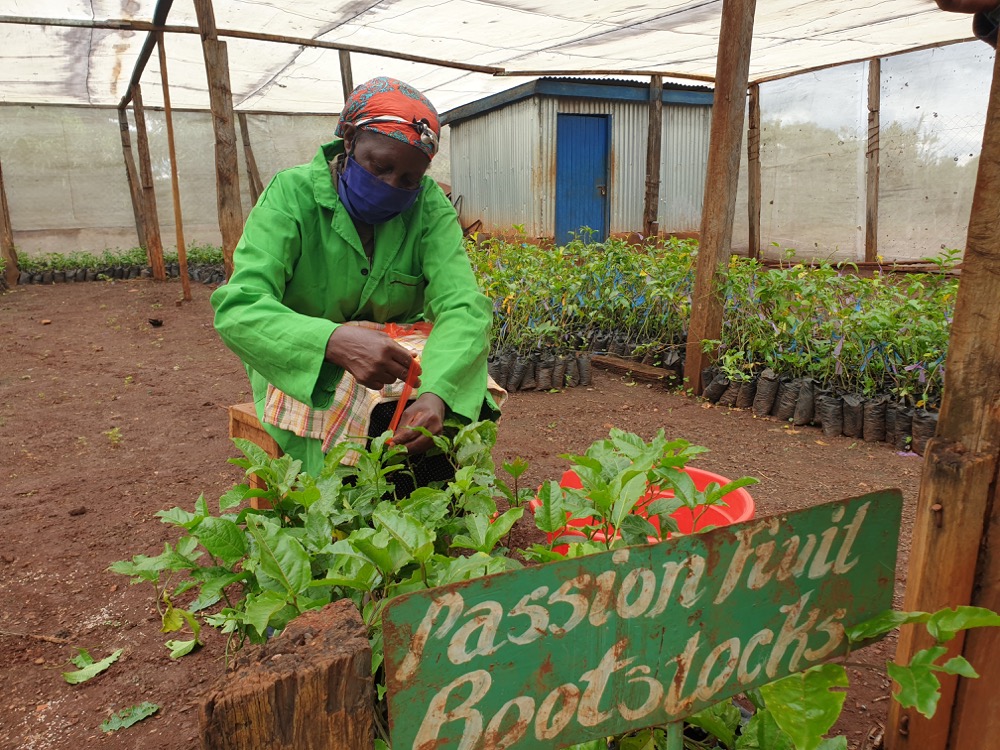Passion Fruits: Clean Planting Materials for Better Yields, Increased Income

Passion fruits are popular especially for their pulp and juice. These fruits are loaded with nutrients such as Vitamins A and C, as well as iron. Economically, passion fruits have market potential both locally and internationally.
In Kenya though, passion fruits farming is faced with various challenges such as woodiness disease, Uganda passiflora virus, fusarium wilt, root and colar rot among others.
To overcome these challenges, there is need to manage the crop right at the seedlings level. In this light, MARKUP Kenya will be working with Kenya Agriculture and Livestock Research Organisation (KALRO) in developing and promoting clean planting materials for passion fruits, groundnuts and macadamia.
At KALRO Njoro, scientists develop clean planting material for passion fruits through tissue culture technology.
“KALRO will partner with MARKUP Kenya to link with nurseries operators, farmers and other relevant stakeholders, in promoting clean planting materials for passion fruits,” says John Nyaga, a scientist based at KALRO, Njoro
According to him, a single pure clean seedlings has the potential of bearing about 24 tonnes of passion fruits while unclean seedlings are vulnerable to diseases thus bearing about 8 tonnes for a similar period of time.
Another advantage of tissue culture seedlings is that they mature around the same time. This means that farmers can plan properly when to harvest, and link the same with market research and search.
The clean plantelettes developed through tissue culture technology in Njoro are either sold to farmers or other interested stakeholders like farming groups. Additionally, some of them are delivered to KALRO’s Horticulture Research Institute (HRI) in Thika where they are grafted.
At HRI, Grace Watani, a research scientist who is in charge of the seed unit, explains the process of grafting passion fruits. The sour yellow passion fruits variety, she says, is resistant to fungal diseases. It is therefore used as the root stalk, while the purple passion is used as the upper material.

The export market, she notes, often expresses demand for the purple passion. However, the fruits have to be disease free, rich in colour and right in size, in order to be marketable especially in the export arena. Additionally, for farmers to realize profits from passion fruits farming, they need to plant high yielding plants.
As much as these plants are resistant to diseases, farmers need to manage pests such as thrips, mites and white flies, which are great enemies to passion fruits farming.
“The main thing in controlling diseases is by starting with clean planting material,” notes Grace. She advises farmers to source planting materials from certified nurseries, as sourcing them from unqualified nurseries means the plants are likely to succumb to diseases such as woodiness disease.
Through MARKUP program, KALRO will work with the government and private sector in trainings and enhancing access to clean planting material for passion fruits. The program, will help in increasing not only the planting material, but also production and the area that will be under passion fruits. Farmers will also be exposed to possible markets locally, regionally as well as internationally.
